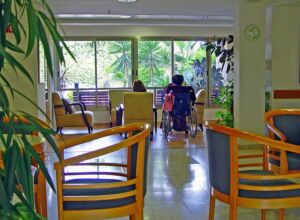News
Denmark’s first multicultural nursing home caters mostly for Danes
This article is more than 10 years old.
In spite of efforts to build a dialogue with elderly people of various ethnic backgrounds, the Peder Lykke Center has not been successful in attracting many non-Danish residents

Many non-Western immigrants prefer to look after their elderly relatives themselves (photo: Etan J Tal)
Denmark’s first multicultural nursing home is a fiasco, claims Karin Storgaard a Copenhagen city councillor for Dansk Folkeparti.
Eighteen months ago, when Copenhagen Municipality opened the Peder Lykke Center in Amager, the objective was for elderly people from different nationalities and cultural backgrounds to live together.
However, since then only two Muslims and 12 other non-Danish nationals have moved into the nursing home that caters for 150 residents in total.
Placing relatives to nursing homes is shameful
However, there is a good reason for this, explained Mette Olsen, the nursing home’s manager, to Metroxpress.
“For many immigrants from non-Western countries it is shameful to place their relatives in a nursing home,” she said. “They don’t associate nursing homes with anything positive,”
Olsen explained that the centre puts a lot of effort into building a dialogue with elderly citizens of various ethnic backgrounds.
“Whether we are successful or not is not about how many people with different nationalities move in, but whether we can support the many different lifestyles, traditions and everyday needs our residents have,” Olsen noted.
It is a failure
Storgaard, who is a member of the health and social care committee at Copenhagen Municipality, contends that the Peder Lykke Center is a “failure”.
“I don’t understand what’s wrong with just having Danish nursing homes,” she told Metroexpress.
“The residents can have their wishes fulfilled regardless of whether they want this or that.”
Catering for different cultures
Ninna Thomsen, the deputy mayor for health and social care, insists there is a need for a multicultural retirement home in Copenhagen.
“This nursing home was never intended only for Muslims, but was supposed to cater for different traditions, languages, culture and religions. Danes should also have a place there,” Thomsen stated.










































